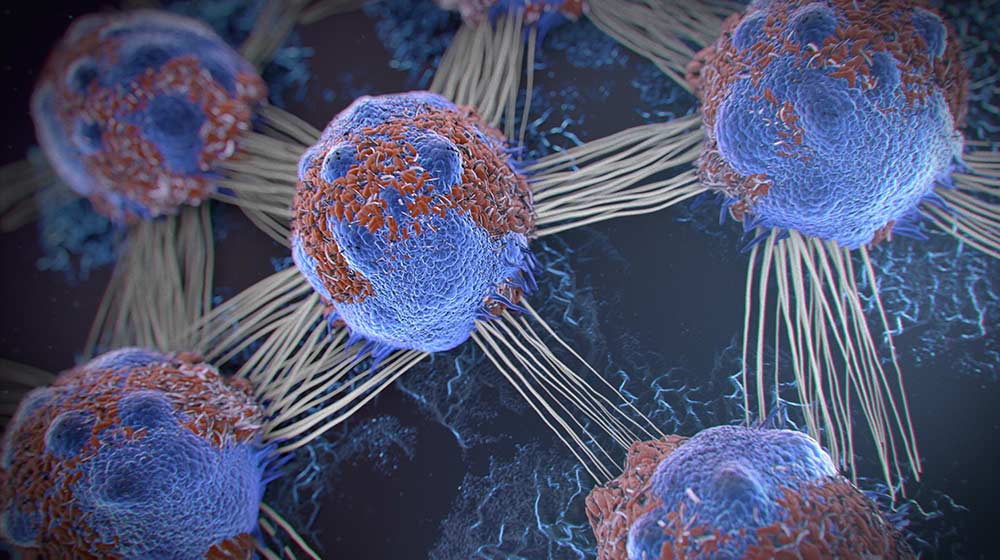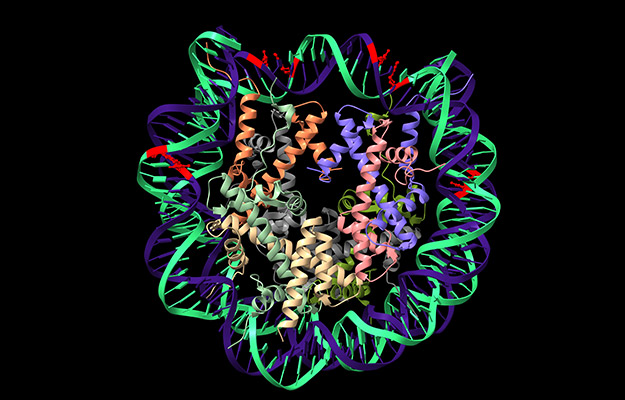Investigating Cancer Mechanism Using Universally Specific Biomarkers In Pan-Cancer Categories

Cancer is a genome disease caused by somatic mutations to the DNA within cells. These mutations alter pathways involved in regulating cellular growth and interactions with the surrounding tissue environment. To date, there are over 100 types of cancers characterized by abnormal cell growth.
Together with these epimutations, widespread genetic alterations play a significant role in the initiation and progression of cancer. Epimutations (epigenetic mutations) are the first step of tumorigenesis and are caused by DNA methylation.
DNA methylation (DNAm) is a type of epigenetic marker, and is considered one of the primary interfaces between the genome and the environment. Two types of epigenetic abnormalities – DNA hypomethylation and hypermethylation – usually seem to affect different DNA sequences. Genomic hypermethylation has the potential to silence the tumor suppressor genes. It is often observed in CpG islands which can identify a specific feature of cancer. Meanwhile, Global DNA hypomethylation is seen in both highly and moderately repeated DNA sequences in cancer which works by inducing chromosomal instability and global loss of imprinting.
It is necessary to investigate DNAm patterns across multiple cancer cohorts to understand the mechanisms of DNAm in tumorigenesis.
Therefore, the International Cancer Genome Consortium (ICGC) and The Cancer Genome Atlas (TCGA) Pan-Cancer Analysis of Whole Genomes (PCAWG) Project performed whole-genome sequencing and integrative analysis on over 2,600 primary cancers and their matching normal tissues across 38 distinct tumor types. A comprehensive understanding of the cancer groups might help clinical diagnosis and improve treatment effect.
Read the original publication of this study here: [ Exploring epigenetic biomarkers of universal specificities and commonalities among pan-cancer cohorts in The Cancer Genome Atlas ]
This study aims to explore the mechanism of cancer by employing a comprehensive analysis of DNA methylation patterns and variations among pan-cancer cohorts.

Exploring epigenetic biomarkers of universal specificities and commonalities among pan-cancer cohorts in The Cancer Genome Atlas
This study focuses on the discovery of universally specific or common biomarkers by mathematical statistics and machine learning methods in The Cancer Genome Atlas.
The researchers used the DNAm data of the primary ten cancer cohorts with corresponding normal solid tissues, including the most common cancer types such as bladder urothelial carcinoma (BLCA), invasive breast carcinoma (BRCA), and kidney renal clear cell carcinoma (KIRC) and kidney renal papillary cell carcinoma (KIRP). An additional 22 cancer cohorts were included in the multi-classification analysis.
Reliable and rigorous DNAm data play a vital role in analyzing downstream analysis, including causal relationships and disease biomarker identification. Currently, the identification of CpG methylation at specific loci is considered the most promising epigenetic biomarker.
In this study, the researchers obtained a comprehensive understanding of the molecular basis of cancer using the TCGA project. They found that DNAm patterns possess universal commonalities and specificities across multiple cancer cohorts. The angiogenesis and coagulation function in common DMRs of most cancer cohorts, which are inducing factors for several cancers, were explored.
By exploring hyper- and hypo-methylated CpGs, it was confirmed that CGIs were frequently located at gene promoter regions, with a certain amount of hypomethylation. The DNAm instability of the promoter region caused whole-genome instability, inducing several types of cancer.
This study also confirmed DNAm instability across all CpGs or genes, using CV in primary cancers and normal solid tissues, respectively. Primary cancers were highly disordered compared with the usual solid tissues in different cancer cohorts, same as in genes.
The results found 138 differently methylated CpGs (DMCs) with a common methylation trend and eight commonly differently methylated regions in different cancer cohorts. Furthermore, 99 DMCs were found to distinguish 32 different cancer cohorts in random forest analysis because of the specificity mechanism, but each DMC still had high instability.
Researchers suggest these findings could facilitate the development of biomarkers that are universally specific and standard features across pan-cancer cohorts. Uniform implementation of the DNAm biomarkers holds great promise for the standardization of cancer diagnostics across clinical trials.
Takeaways:
- This research focused on discovering universally specific or common biomarkers; an easily detectable, highly stable biomarker would be suitable for clinical use.
- Using a comprehensive analysis of DNAm patterns and variations in cancers could facilitate the development of biomarkers based on universal specificities and commonalities in the cancer analysis.
- It was found that primary cancers were highly disordered compared with the typical solid tissues in different cancer cohorts, same as in genes.
You can read the original publication of this study here: [Exploring epigenetic biomarkers of universal specificities and commonalities among pan-cancer cohorts in The Cancer Genome Atlas]








